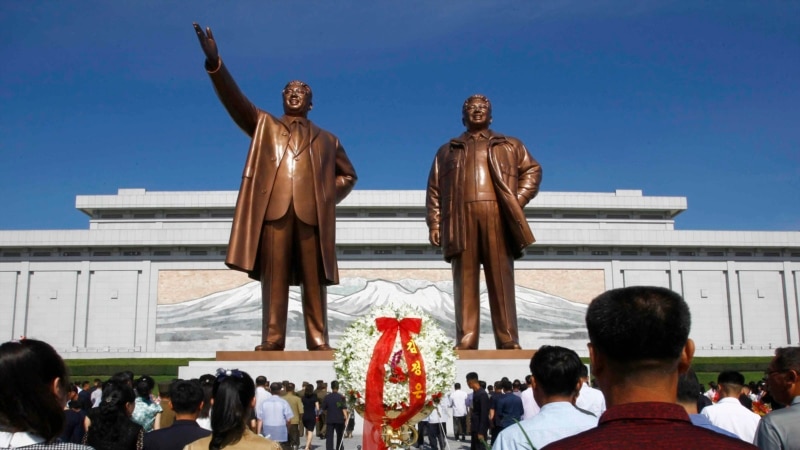A former U.S. official with extensive experience in North Korea sanctions said the United States and like-minded countries must find new ways to monitor enforcement of sanctions against North Korea after the term of a U.N. panel of experts expires this month.
The U.N. panel of experts is tasked with investigating whether member states have imposed sanctions on North Korea over the past 15 years. However, at the Security Council meeting on March 28, Russia vetoed the resolution requiring the annual extension of the expert group, and the expert group will be disbanded after April 30.
This is the first time the Security Council has failed to extend the panel’s mandate for another year. But Russia has grown closer to North Korea since Pyongyang began violating sanctions to arm Moscow’s war in Ukraine.
The group, composed of eight experts, was established in 2009 and issues in-depth reports twice a year describing cases of sanctions violations by UN member states, their entities and their nationals. These sanctions will remain in effect.
Once the group is no longer active, the United States and other countries that support its work – such as the United Kingdom, France, Japan and South Korea – will have to rely on other means to monitor and enforce sanctions.
Potential alternatives include tapping new or existing coalition groups, which would be “much more powerful than relying on a U.N. panel of experts,” said Washington lawyer Joshua Stanton, who helped draft the 2016 The Sanctions and Policy Enforcement Act.
Stanton told VOA via email on Friday that Washington should view Moscow’s veto “as an opportunity to break away from Russian and Chinese obstruction, build better alliances, and give sanctions investigation and enforcement the vigor that the United Nations system has been denied.”
The Proliferation Security Initiative (PSI), led by the United States and composed of more than 100 countries, aims to curb the proliferation of weapons of mass destruction through interception and other methods.
It was created in 2003 by former US President George W. Bush in response to a failed 2002 attempt by the United States and Spain to seize the cargo of a North Korean ship carrying ballistic missiles bound for Yemen.
Stanton said PSI member states can authorize interceptions under their national laws.
Another international alliance is the Egmont Group, which aims to combat money laundering and terrorist financing.
Established in 1995, it consists of financial intelligence units from 174 member countries that share information and cooperate to combat illegal financial activities. The U.S. Department of the Treasury’s Financial Crimes Enforcement Network is a founding member.
The United States is building another alliance with South Korea. On March 26, Washington announced the first meeting of the Enhanced Interference Working Group with Seoul, aiming to prevent North Korea from purchasing refined oil in violation of United Nations sanctions.
Anthony Ruggiero has worked in the U.S. government for more than 19 years, focusing on targeted financial sanctions and proliferation issues, including those involving North Korea. Multilateral organizations such as PSI are “always beneficial” to monitoring and enforcing sanctions, he said in a telephone interview with VOA on Monday.
“We need these groups to show which authorities can take action, whether through sanctions, enforcement actions or other mechanisms, to stop these activities,” added Ruggiero, now senior director of the Nonproliferation and Biodefense Program at the Foundation for Defense of Democracies. .
He also said that “U.S. sanctions are more severe than UN sanctions” and the question is whether Washington is willing to fully implement these sanctions, such as targeting Chinese and Russian companies, individuals and banks that employ North Korean workers in violation of sanctions.
China has been accused of employing North Korean workers to process seafood products and false eyelashes.
Expanding cooperation between Moscow and Pyongyang has raised concerns that North Korean workers will flock to Russia to collect wages remitted to the state.
Aaron Arnold, a former member of the U.N. expert panel and now a senior associate fellow at the Royal United Services Institute in London, said there would be opposition to sanctions monitoring outside the U.N.
“While Western governments will certainly step in to provide intelligence and information on North Korea’s sanctions evasion activities, the harsh reality is that these efforts will be viewed with high suspicion by non-governmental organizations,” Arnold told VOA via email on Friday. Western governments .”
Follow us on Google news ,Twitter , and Join Whatsapp Group of thelocalreport.in
